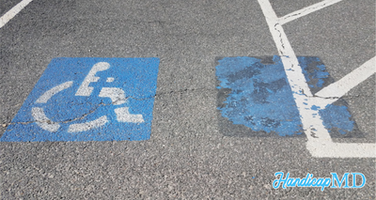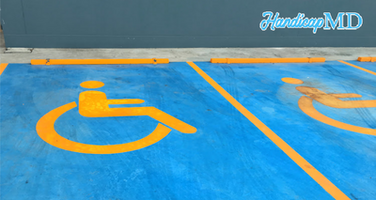
Disabled Parking Permits in San Jose
Disabled Parking Permits in San Jose - In San Jose, acquiring a disability tag is essential for residents with qualifying medical conditions, providing access to accessible parking spots and a range of parking privileges across the city. This guide covers all aspects of obtaining and managing a disability tag in San Jose, including online application steps, types of tags, fees, renewal processes, and where these tags are valid. Below, we explore the different criteria, procedures, and benefits associated with the San Jose handicap parking permit system, with links to helpful resources and local government pages.
Qualifying Medical Condition for a Disability Tag in SJ
Medical Conditions for Parking tags
To qualify for a disabled parking tag in SJ, applicants must meet specific criteria defined by the DMV. These guidelines ensure that only those who genuinely need the mobility assistance and accommodations provided by the tag are eligible. Below, we explore the medical conditions that commonly qualify and explain why a disability tag is an invaluable resource for each.
For further details on each condition and to check eligibility, you can visit HandicapMD’s guide to disability tags and the DMV disability services page.
Limited Mobility
Limited mobility is one of the most common qualifying conditions for a disability parking tag and can stem from a variety of causes, such as:
- Arthritis: Severe joint inflammation in conditions like rheumatoid arthritis or osteoarthritis can restrict mobility and make even short walks challenging. With symptoms including pain, stiffness, and swelling, arthritis can significantly impact the ability to move comfortably. A tag can offer easy access to building entrances, reducing the strain caused by long distances. Learn more about arthritis and mobility from the Arthritis Foundation.
- Orthopedic impairments: Bone, joint, or muscle impairments (e.g., spinal injuries, broken bones, or limb loss) create physical limitations that can qualify someone for a tag. More information is available on OrthoInfo by the American Academy of Orthopedic Surgeons.
- Respiratory issues: Conditions like chronic obstructive pulmonary disease (COPD) and asthma affect breathing and can make physical activity difficult. HandicapMD provides more details on respiratory-related disability tags here.
A disability parking tag for limited mobility conditions is crucial, as it allows individuals to park closer to their destinations, reducing the physical burden of long walks and stairs.
Cardiovascular Disease
Severe cardiovascular conditions qualify for a disability tag as they restrict stamina and make physical exertion risky. Common examples include:
- Congestive heart failure: This condition causes fatigue, shortness of breath, and reduced physical capacity, making it challenging to walk even moderate distances. Parking tags enable those with heart disease to avoid excessive exertion and stress.
- Coronary artery disease and angina: Blood flow and oxygen are limited due to narrowed arteries, causing chest pain and shortness of breath. The proximity provided by accessible parking helps reduce physical strain and the risk of symptomatic episodes. The American Heart Association provides additional resources.
For more on cardiovascular conditions that may qualify, visit HandicapMD’s cardiovascular disability tag page.
Visual Impairments
Individuals who are legally blind or suffer from severe visual impairments face unique mobility challenges, as navigating public areas without assistance can be dangerous. Common qualifying visual conditions include:
- Legal blindness: Those with limited vision in both eyes, often defined as having 20/200 vision or worse, may qualify.
- Macular degeneration and retinitis pigmentosa: Conditions that cause gradual vision loss, reducing the field of vision and making it difficult to see obstacles.
Accessible parking helps visually impaired individuals navigate more safely by limiting the distance they need to walk in unfamiliar areas. For more details, refer to the American Foundation for the Blind or HandicapMD’s vision impairment disability tag guide.
Neurological Conditions
Certain neurological disorders affecting movement, balance, and muscle control also qualify individuals for a disabled tag. Examples include:
- Multiple sclerosis (MS): MS damages nerve cells in the brain and spinal cord, leading to symptoms like muscle weakness, balance issues, and fatigue.
- Parkinson’s disease: This progressive disorder impacts movement and coordination, making it difficult to walk or stand for long periods.
- Epilepsy: Frequent seizures and sudden loss of consciousness create risks in public places, where falls and injuries can occur.
A disability parking tagprovides those with neurological conditions convenient access to essential services, reducing the risk of fatigue and injury. More resources are available from the National Institute of Neurological Disorders and Stroke (NINDS) and HandicapMD’s neurological conditions page.
Chronic Pain Disorders
Individuals suffering from chronic pain often find mobility limited by their condition, as pain can become unbearable even with minimal exertion. Examples include:
- Fibromyalgia: Characterized by widespread pain and fatigue, fibromyalgia makes walking or standing difficult.
- Complex regional pain syndrome (CRPS): This condition causes extreme pain, sensitivity, and mobility issues, typically in the limbs.
Accessible parking ensures that individuals with chronic pain have the shortest route possible to their destinations, reducing physical strain and improving daily comfort. Additional information is available from the National Institute of Arthritis and Musculoskeletal and Skin Diseases (NIAMS) and HandicapMD’s chronic pain disability page.
Diabetes Complications
Severe diabetes-related complications can lead to impaired mobility, qualifying some individuals for a disabled parking tag:
- Diabetic neuropathy: Nerve damage in the extremities causes pain and weakness, making walking difficult.
- Peripheral arterial disease: This condition reduces blood flow to the limbs, leading to pain when walking.
With a disability tag, individuals with diabetes complications avoid the excessive physical exertion that can worsen symptoms or cause injury. More information on diabetic complications is available on the American Diabetes Association website, or see HandicapMD’s diabetes disability tag page.
Amputation or Loss of Limb Use
Limb loss or limited limb function qualifies individuals for a tag, as mobility is significantly affected. Examples include:
- Upper or lower limb amputation: Adjusting to life with prosthetics or limited movement creates physical challenges that restrict mobility.
- Prosthetic limb use: People using prosthetics experience added strain, especially when navigating uneven terrain or long distances.
A disability tag allows these individuals close parking to help reduce fatigue and improve accessibility. For resources, visit the Amputee Coalition or HandicapMD’s amputation disability tag guide.
Orthostatic Intolerance and Dysautonomia
Conditions that affect blood pressure or heart rate, such as:
- Postural Orthostatic Tachycardia Syndrome (POTS): Rapid heart rate increase upon standing causes dizziness, fainting, and fatigue.
- Dysautonomia: General term for conditions affecting the autonomic nervous system, including issues with blood pressure, circulation, and body temperature regulation.
With a tag, individuals can avoid prolonged standing or walking, reducing the likelihood of experiencing symptoms. Find more information from Dysautonomia International or visit HandicapMD’s POTS disability tag page.
Pulmonary Conditions
Lung and respiratory diseases make it difficult for people to breathe deeply or engage in physical activity:
- Chronic Obstructive Pulmonary Disease (COPD): Affects airflow and causes shortness of breath, making walking difficult.
- Emphysema and chronic bronchitis: Cause chronic shortness of breath, fatigue, and difficulty with physical tasks.
For more information on pulmonary conditions, visit the American Lung Association or HandicapMD’s pulmonary conditions disability tag page.
Application and Further Resources
To see if your condition qualifies, consult the full list of eligible conditions on the DMV disability services page, or contact HandicapMD for help in navigating the process.
A disability parking tag can significantly enhance quality of life, providing convenient access to essential services, reducing strain, and promoting greater independence for individuals with qualifying conditions. Begin your application today on HandicapMD and explore how a tag can support you.
How to Obtain a Permit Online with HandicapMD.com
How to Apply for a Disability Parking tag in SJ Online
Applying for a disability parking tag online with HandicapMD.com streamlines the process, allowing applicants to skip in-person visits and manage the entire process from home. The steps include:
- Complete an online evaluation: Using HandicapMD.com’s digital forms, enter your information and medical history.
- Submit required documents: Attach medical documentation that supports your qualifying condition.
- Doctor's verification: A licensed physician associated with HandicapMD.com will review and verify your application.
- Submit and receive your tag: Once processed, you’ll receive your SJ disability placard by mail.
For more details on eligibility and the application form, visit disability services page.
Why is Getting the Tag Online Beneficial?
Applying online for a SJ disability tag offers multiple benefits:
- Convenience: Avoid long waits at DMV offices.
- Verification: HandicapMD’s medical professionals are trained in DMV requirements, ensuring your application meets all necessary standards.
- Streamlined process: Reduce the risk of errors and improve processing time.
What Types of Handicap Parking tags are Available in SJ?
San Jose offers several types of disabled parking tags, including:
- Temporary Disability Placard: Ideal for short-term conditions lasting less than six months.
- Permanent Disabled tag: For residents with chronic or long-term disabilities.
- Travel Disability Placard: For those needing temporary access in Ca from out of state.
Visit the SJ DMV’s disability parking information page for additional specifics on each tag type.
San Jose Handicap Parking Permit Rules
SJ’s tag rules specify that disability tags allow:
- Free metered parking in most locations.
- Extended time limits in certain areas.
- Accessible privileges at all city-maintained lots and structures.
Rules vary, so refer to the SJ Municipal Code or consult a city representative for more information on where you can use your tag.
Fees
Fees for obtaining or renewing a SJ handicap permit can vary:
- Initial application: There is no fee for permanent placards.
- Renewal: Permanent disability tags automatically renew every two years without charge.
- Replacement costs: A small fee applies for lost or damaged placards.
Details on the cost of renewing a handicap parking placard in San Jose can be found on the DMV website.
Validity / Expiration of tags
- Temporary placards: Valid for up to six months or as specified by your physician.
- Permanent tags: Renew automatically every two years with no action required by the tag holder.
For updates on SJ disability guidelines, check the DMV’s latest renewal policies.
Renewals
Renewing a disability parking tag in SJ is straightforward, especially for permanent tags, which do not require reapplication. Temporary tags, however, must be re-evaluated if the condition persists.
How to Replace a Lost or Stolen Disabled Parking Permit in SJ
Lost, Stolen, or Damaged Placards
Is Disabled Parking Free in SJ?
Do You Have to Pay for Handicap Parking in SJ?
Disabled drivers in San Jose generally enjoy free access to metered spaces. However, parking garages or private lots may have different policies. To confirm where disabled parking is free in San Jose, consult the SJCity Office or review San Jose’s accessible guidelines.
Where to Hang the Placard
Your disability placard should be clearly displayed on the rearview mirror whenever parked. Make sure to remove it while driving to avoid obstruction of view.
Who Can Verify an Application for a Disabled tag in SJ?
Only licensed medical professionals are authorized to verify disability applications, including:
- Physicians (MD or DO)
- Chiropractors (for limited mobility cases)
- Optometrists (for visual impairments)
For online applications, HandicapMD.com’s certified physicians handle all necessary verifications to ensure compliance with SJ city and state guidelines.
Can I Use My Handicap Placard in Someone Else's Car in SJ?
Yes, you may use your disability placard in any vehicle, provided you are present in the car. This is beneficial for those who rely on friends or family for transportation.
Can a Pregnant Woman Get a Handicap Placard in SJ?
Pregnancy-related conditions that affect mobility may qualify for a temporary handicap parking tag in San Jose. A doctor’s certification is required, particularly for complications that impact movement.
Where Do I Get a Handicap Placard Near Me?
Local DMV offices throughout SJ handle in-person applications and offer information on nearby service locations. Use the DMV office locator to find the nearest branch.
Where is a San Jose Handicap Parking tag Valid?
A SJ handicap parking tag is valid throughout the state, with reciprocal agreements in other states. If you travel outside SJ, verify whether local laws tag the use of your tag.
Obtain Your Permit with HandicapMD
Whether seeking a Disabled Parking Permits in San Jose, HandicapMD.com simplifies the process with expert guidance from licensed professionals. Visit their website today to begin your application and gain accessible parking privileges throughout San Jose.
.png)





